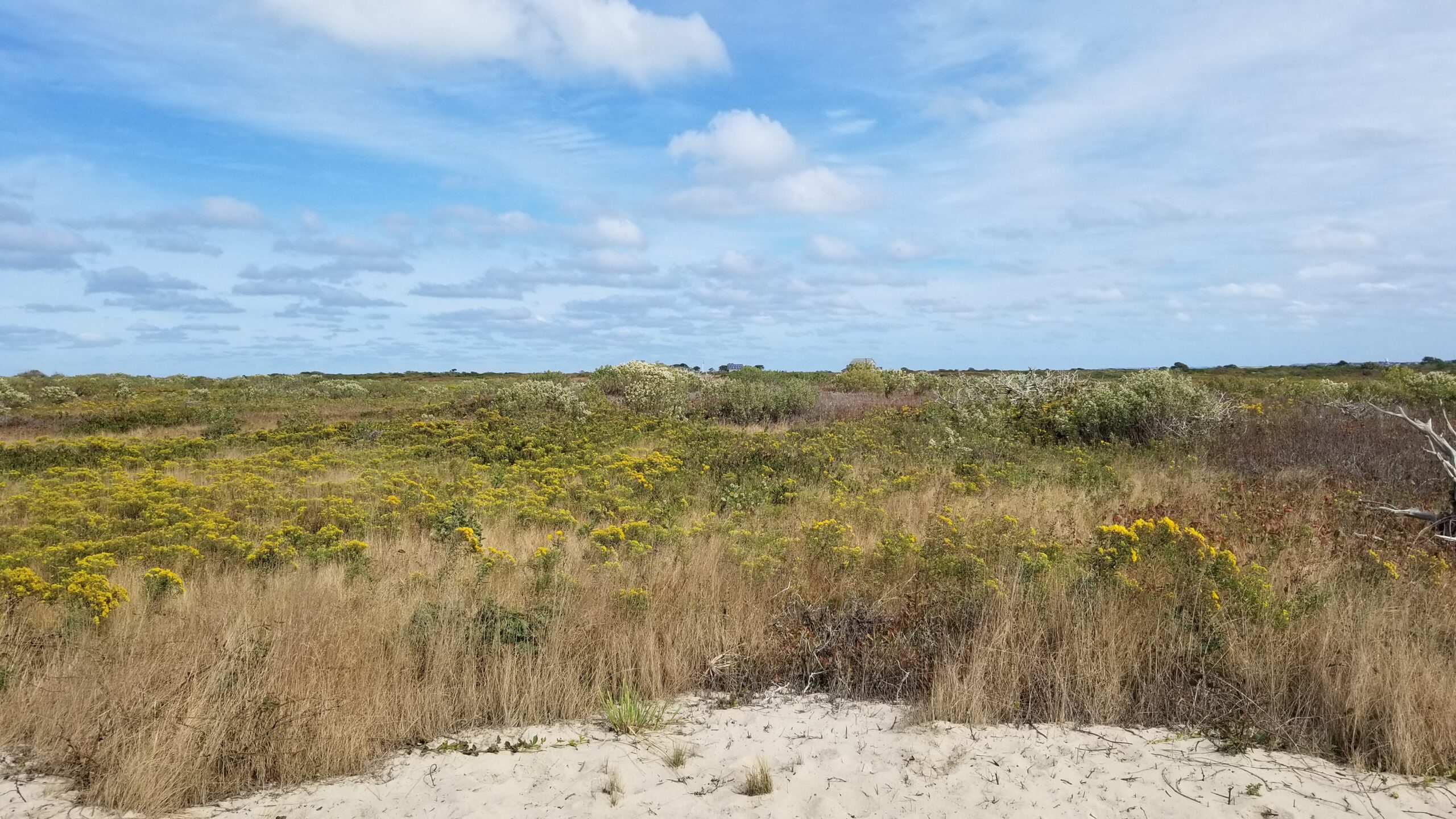
The Baker-Polito Administration, through the MassWildlife Habitat Management Grant Program, overseen by the Massachusetts Department of Fish and Game, recently awarded nearly $500,000 in financial assistance to private and municipal landowners of conserved lands to improve and manage habitat for wildlife deemed in greatest conservation need.
Heralded as “The Climate Change Resilience Grant Opportunity”, the grant supports projects that improve resiliency in ecological communities that are susceptible to climate change. Funds will support habitat improvement projects totaling 514 acres of land within the Commonwealth of Massachusetts, including fire-adapted natural communities such as the sandplain grasslands found on Martha’s Vineyard.
The Nature Conservancy’s Cape Cod & Islands office (TNC) has received $75,000 to put towards prescribed burns on the Katama Plains in conjunction with The Trustees of Reservations (TTOR) being awarded another $75,000 to conduct prescribed burning at Wasque Reservation and Long Point Refuge to promote coastal sandplain heathland habitat. Also, in Edgartown, the Sheriff’s Meadow Foundation has been awarded $17,980 to improve scrub oak shrubland habitats at Pocketapaces and Quansoo Farm.
On Nantucket Island, The Linda Loring Nature Foundation has been awarded $75,000 to improve sandplain grassland habitats by removing non-native tree species and in Sudbury, MA, the City of Marlborough, in conjunction with the Sudbury Valley Trustees, has been awarded $49,182 to conduct pitch pine–scrub oak habitat improvements at Desert Natural Area and Memorial Forest.
With 60% of all total funding going towards early-successional habitats, and a $225,000 piece of the pie going directly towards sandplain habitats, this financial support emphasizes an astute awareness to the significant challenges these habitat niches are up against in the face of climate change and shows a promising commitment to their preservation.
Getting prescribed burns set up on Martha’s Vineyard was no easy task. Without a local burn boss able to take on the project, it took a partnership between TNC and TTOR to hire a burn crew out of New Jersey (another state known for it’s early-successional habitats) and they are currently making plans to conduct a burn during the spring of 2023.
Written by Rich Couse, TNC Field Stewardship Assistant
Photo: TNC’s Tuckernuck Preserve, Tuckernuck Island, by Rich Couse

